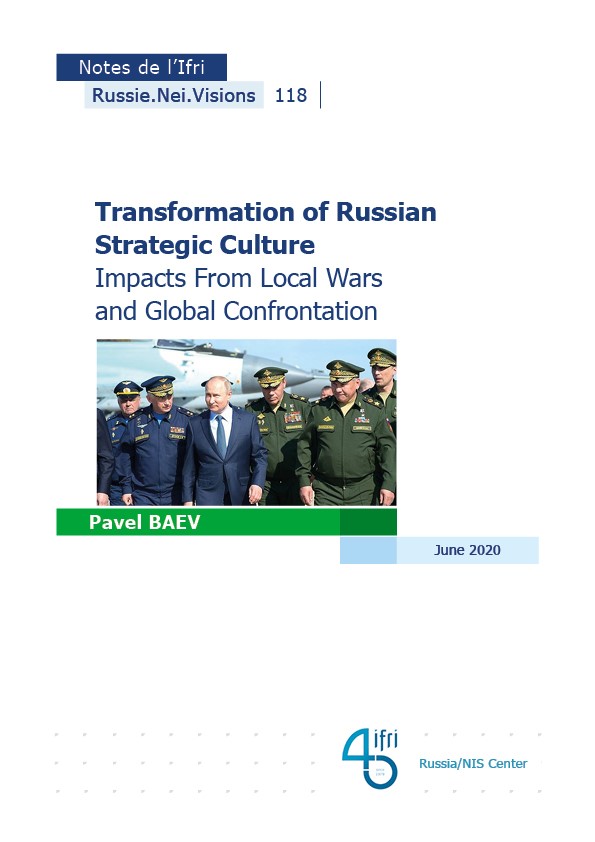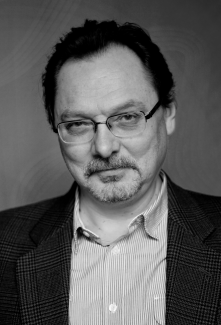Transformation of Russian Strategic Culture: Impacts from Local Wars and Global Confrontation

Russian strategic culture is evolving fast, despite the consolidation of the ruling regime, which is maturing into a more rigid autocracy, whereby its ideological outlook becomes increasingly conservative.
The Russian leadership’s strong propensity to glorify the past and emphasize victories inevitably distorts the content of internalized experiences and reduces the capacity to learn from mistakes. This assertive conservatism fits well with interpreting the new confrontation with the West as a return to the Cold War pattern of relations, despite the obvious vast differences in the geographic and power parameters of the conflict. At the same time, the pressure of actual engagements in military conflicts and fast-evolving technologies induce and drive changes in the strategic culture, which has become more fluid than the Russian political and military elites have been used to.
The Armed Forces are directly exposed to the challenges of unfamiliar battlefields and unprecedented threats, so the top brass, while being firmly committed to conservative mindsets and values, are compelled to act as innovators and reformers of the strategic culture. The input from the General Staff and other structures of military command, which now include many “warriors” with first-hand experience in various armed conflicts and engagements, particularly the Syrian intervention, has been more productive in new fields such as cyber-operations than in the more politically sensitive matters pertaining, for instance, to the threat of revolutions. The problem with the transformation of the strategic culture initiated by the military elite is the strongly implied and clearly stated imperative to increase the allocation of resources to build up the Armed Forces. In a situation of protracted economic stagnation, this demand creates an unusual degree of tension between the ambition to withstand, and even prevail, in the confrontation with the West, and the reality of contracting resource allocation, which is further trimmed by rampant corruption.
Pavel Baev is a Research Professor at the Peace Research Institute, Oslo (PRIO). He is also a Senior Non-Resident Fellow at the Brookings Institution, Washington DC, and an Associate Research Fellow at Ifri, Paris.
Download the full analysis
This page contains only a summary of our work. If you would like to have access to all the information from our research on the subject, you can download the full version in PDF format.
Transformation of Russian Strategic Culture: Impacts from Local Wars and Global Confrontation
Related centers and programs
Discover our other research centers and programsFind out more
Discover all our analysesDeathonomics: The Social, Political, and Economic Costs of War in Russia
The report attempts to outline and examine a truly new phenomenon in Russian society, dubbed “deathonomics”—the making of a mercenary army against the backdrop of the Kremlin’s war in Ukraine, eventually replacing both the Soviet (conscript) and early new Russian (contract) armies. It notes that, by the end of 2023, this trend had turned the military service into one of the highest-paying professions in the country, something not seen in Russia on such a scale since the late 17th century.
Russia's Asia Strategy: Bolstering the Eagle's Eastern Wing
Among Russia’s strategic priorities, Asia traditionally played a secondary role compared to the West. In the mid-1990s, then Foreign Minister Yevgeny Primakov initiated a rapprochement with China and India. Then, in 2014, deteriorating relations between Russia and the West prompted Moscow to begin its “great pivot to the East”.
Kazakhstan After the Double Shock of 2022: Political, Economic and Military Consequences
The year 2022 represented a dual shock for Kazakhstan. In January, the country faced its most severe political crisis since independence, followed in February by Russia’s full-scale invasion of Ukraine, which cast uncertainty over the borders of post-Soviet states. These consecutive crises profoundly shaped Kazakhstan’s domestic and foreign policy.
How the Russian Army Changed its Concept of War, 1993-2022
The traditional and high-intensity war that has occurred in Ukraine since Russia decided to invade raises a key issue: did post-soviet Russian strategic thought really prepare Russia for waging this war?













